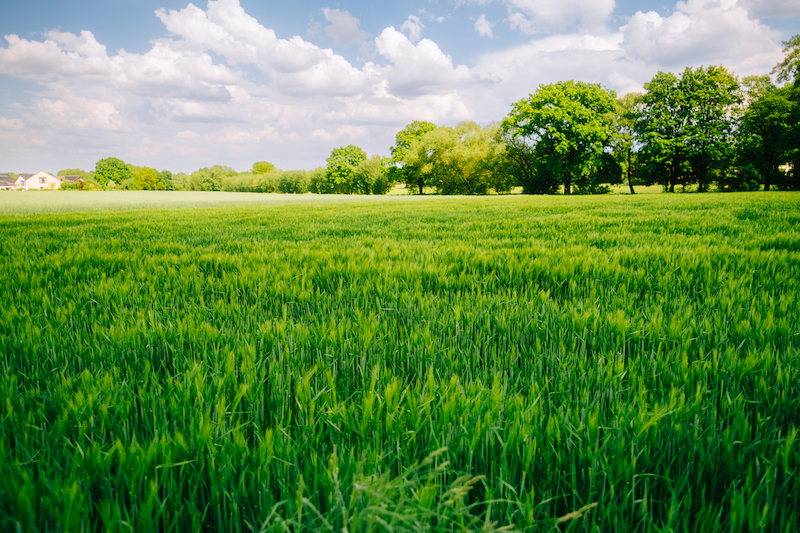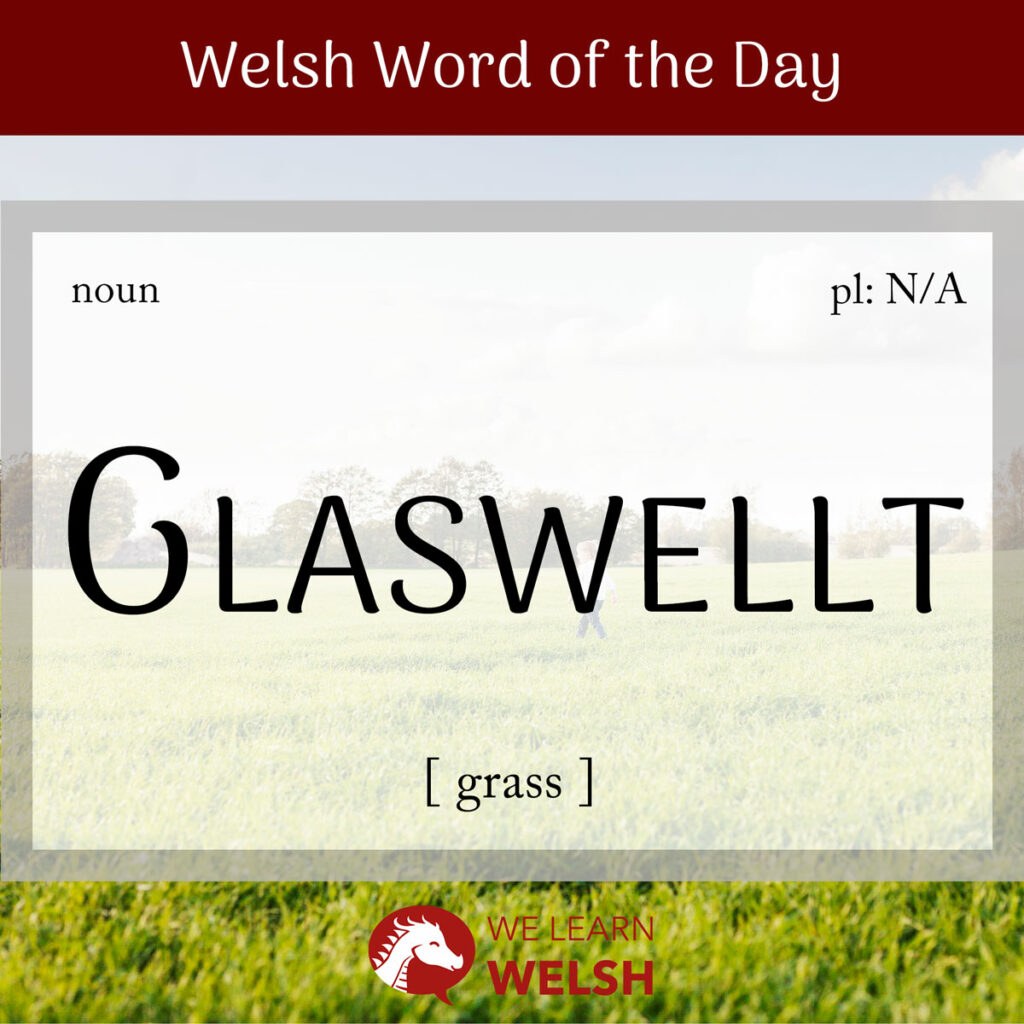The Welsh flag famously features a red dragon (draig goch), but you could argue that the green field it’s standing on is just as important. There are plenty of words for grass in Wales, which makes sense, because the country is well-known for being full of glaswelltiroedd (grassy pastures)and bryniau gwyrddlas gwelltog (grassy green hills).
Grass can be translated as glaswellt, porfa (pasture), gwellt, gwelltglas, or gwair. Gwair technically means hay, but you can also refer to the latter more specifically as gwair sych. While gwair is probably the most common term in colloquial usage, my personal favourite is the more literary glaswellt. It’s a collective plural, and the singular equivalent, meaning a blade of grass, is glaswelltyn, although you can also say blewyn o laswellt (a hair of grass). Grasses translates to glaswelltau or gweiriau.
glaswellt
grass
Glaswellt comes from the words gwellt (straw, grass) and glas (blue). This might be a bit confusing, since grass is not usually blue! However, glas is also used to refer specifically to the green of fresh shoots of vegetation, meaning that glaswellt essentially translates to fresh straw or green straw.
In modern Welsh, it wouldn’t make sense to use glas to mean green in any other context – you’d use gwyrdd. Historically, though, glas referred to a wide variety of colours, spanning blue, green, silver, and gray. The precise bright shade of green that we might call ‘grass-green’ is still gwyrddlas in Welsh, although the word can also mean turquoise.
Paid â cherddwch ar y glaswellt!
Don’t walk on the grass!
The other interesting thing about the etymology of glaswellt is that usually, the adjective follows the noun in Welsh, which is probably why we also find the variant gwelltglas, especially in the North. The word is used for grass depends on the region of Wales. Porfa is more common in the South, and in the North-West you might even hear the variant gwelltglaitsh. But all of these words will be understood throughout the country, regardless.
Let’s look at the different mutations of glaswellt.
Soft mutation
laswellt
Nasal mutation
nglaswellt
Aspirate mutation
N/A
Glaswellt is a masculine term, as are both gwair and porfa.
Here are some verbs commonly used with glaswellt:
- torri’r glaswellt = cutting the grass/mowing the lawn
- glaswellt wedi’i dorri’n ffres = freshly mown grass
- dyfrio’r glaswellt = watering the grass
- plannu glaswellt = planting grass
- mae’r glaswellt yn tyfu = the grass is growing
- hau cae â glaswellt = to sow a field with grass
Glaswellt can be byr (short), hir (long), bras (coarse), llaith (damp), or wedi gordyfu (overgrown). Thin, reedy grasses are cawnen, and a lawn is a lawnt.
Oes gennych chi beiriant torri glaswellt?
Do you have a lawnmower?
Like in English, there are also terms for various species of grass and flowers. Many of these derive from glaswellt:
- marchwellt or glaswellt y cŵn = houndstongue
- glaswellt y fuwch = carpet-grass
- rhedynen laswellt = fern
- glaswellt pawr = pasture grass
- bragwellt = couch grass
- glaswellt y cangarŵ = kangaroo grass
I didn’t even know that kangaroo grass existed in English!


